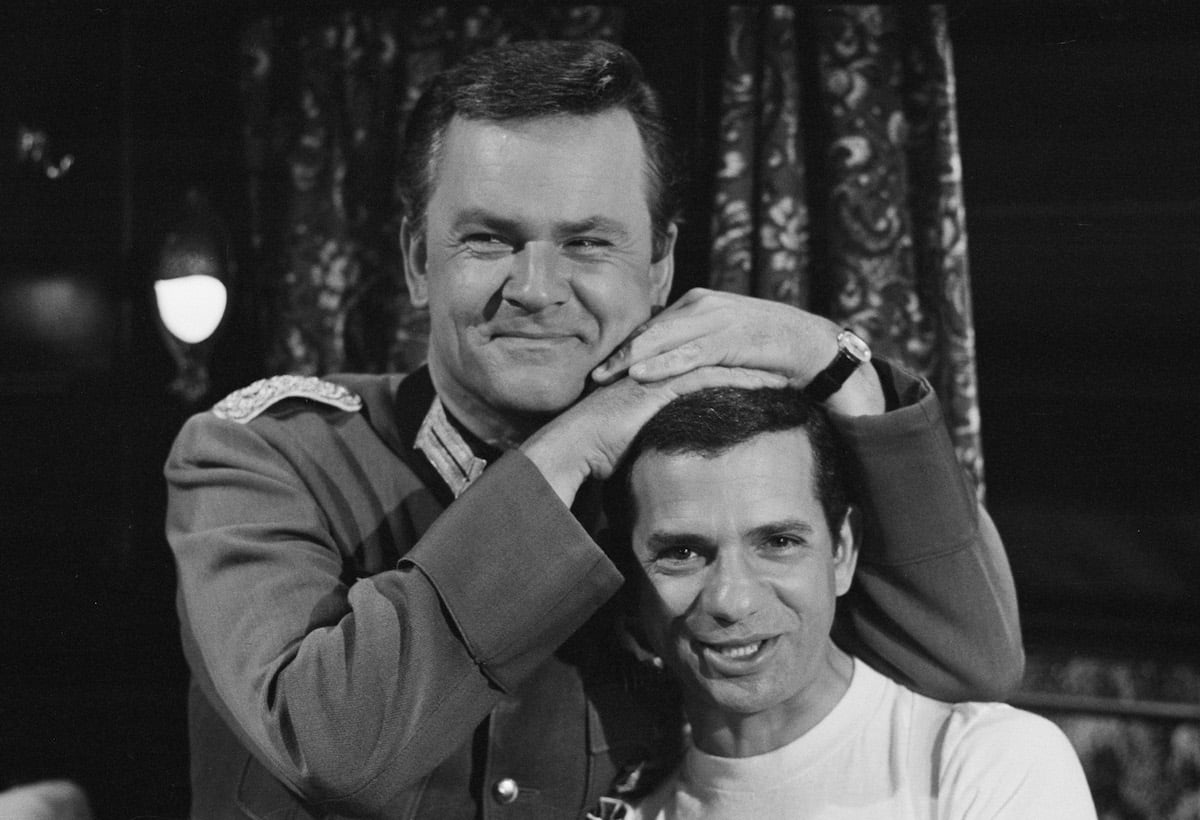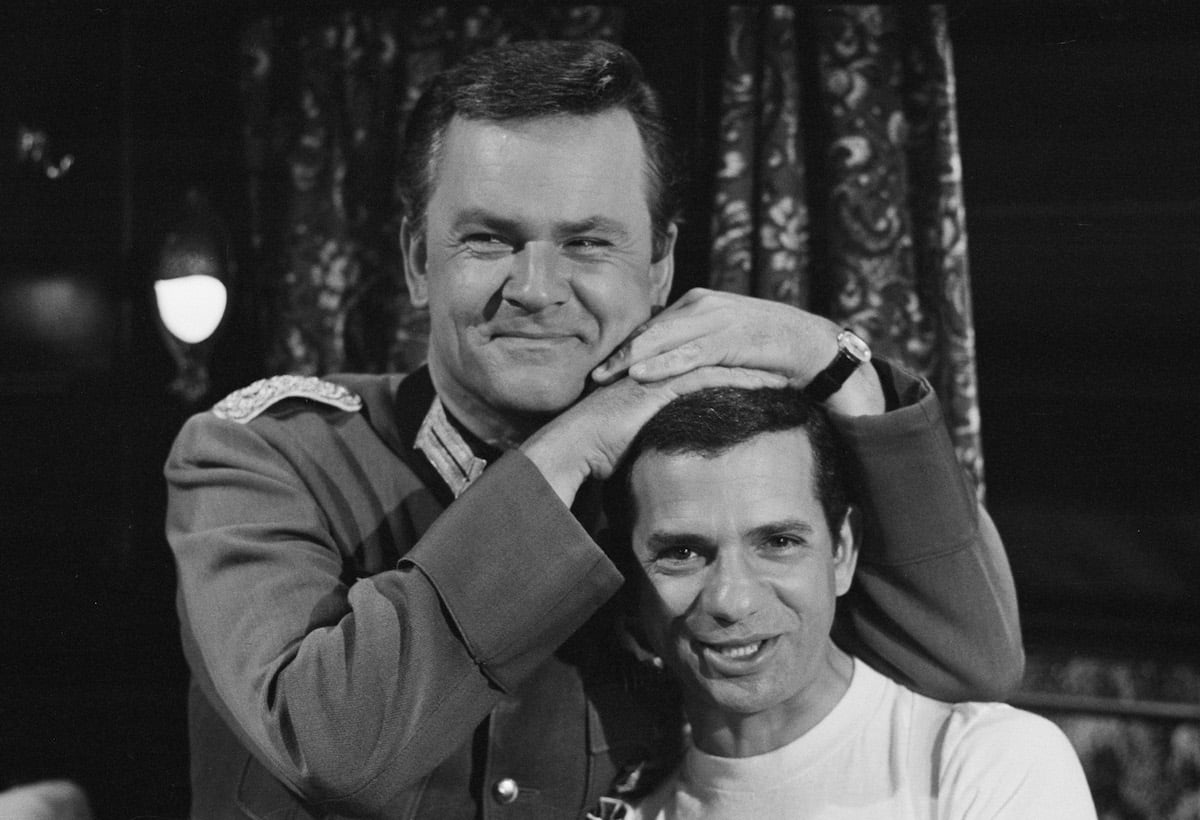
Robert Clary Adopted His Stage Name While Imprisoned in Concentration Camps
On November 16, Robert Clary died at 96 years old. The actor was best known for playing Corporal Louis LeBeau in the World War II-era comedy Hogan’s Heroes. But Clary’s history included a much darker part of that era. As a Jew in occupied France during WWII, he faced terrible losses. But because of his extraordinary spirit, he emerged from that time determined to become an entertainer — and gave himself a stage name to match his ambitions.
The early years

Robert Clary was born Robert Max Widerman in Paris in 1926. His parents, Moishe and Baila Widerman, had moved to Paris from Poland after World War I.
Clary was one of 14 children living in a humble, crowded apartment. But he had his eye on a different kind of life. He loved to perform and taught himself to dance by watching movies and copying Fred Astaire. By age 12, Clary was a member of a backing chorus on a weekly radio show, The New York Times reported.
However, Germany’s invasion of Paris blocked his ambitions in 1940. The Nazis banned Jews from going to parks, restaurants, hotels, and theaters.
Robert Clary spent years in various concentration camps
On Sept. 23, 1942, his family’s worst fears came true. The Gestapo rounded up all the Jews in Clary’s neighborhood. The young men, including 16-year-old Clary, were held back to work and then sent to the Blechhammer concentration camp. Women and children, including his mother and sisters, were sent to the infamous death camp Auschwitz.
According to NPR, Clary spent 31 months in captivity before American soldiers liberated him from the Buchenwald death camp. Both of his parents and 10 siblings died in captivity.
During his time in Blechhammer, Clary found that his talents as an entertainer helped him survive. He received rewards for performing with a few other prisoners.
“Because I entertained, sometimes I would receive an extra piece of bread and another bowl of soup,” he recalled.
During this dark time, he chose his stage surname, “Clary.” He took the moniker from the French film Le Destin Fabuleux de Désirée Clary.
Robert Clary became a professional entertainer after the war
When the war ended, Robert Clary returned to Paris. As his strength returned, he began to work as a performer and singer in nightclubs. He released multiple music records and developed a following in the United States. In 1949, he moved to America.
Over the next few decades, Clary developed a Hollywood career. Eventually, he landed his most famous role, Corporal Louis LeBeau, on Hogan’s Heroes. Some critics panned the show, saying any comedy set during WWII was insensitive. However, Clary disagreed.
“Hogan’s Heroes was about prisoners of war in a stalag,” he explained. “It was not about genocide. It was not Jews going to the gas chambers.”
However, Clary didn’t dismiss the horrors of the Holocaust. He was disturbed by those who denied the atrocities had happened, an antisemitic claim that persists today.
“They write books and articles in magazines denying the Holocaust, making a mockery of the 6 million Jews — including a million and a half children — who died in the gas chambers and ovens,” he protested.
Clary carried the realities of the death camps — along with the identifying numbers the Nazis had tattooed on his forearm — with him for the rest of his life. But he also firmly grasped the joy of entertaining and the will to survive.


